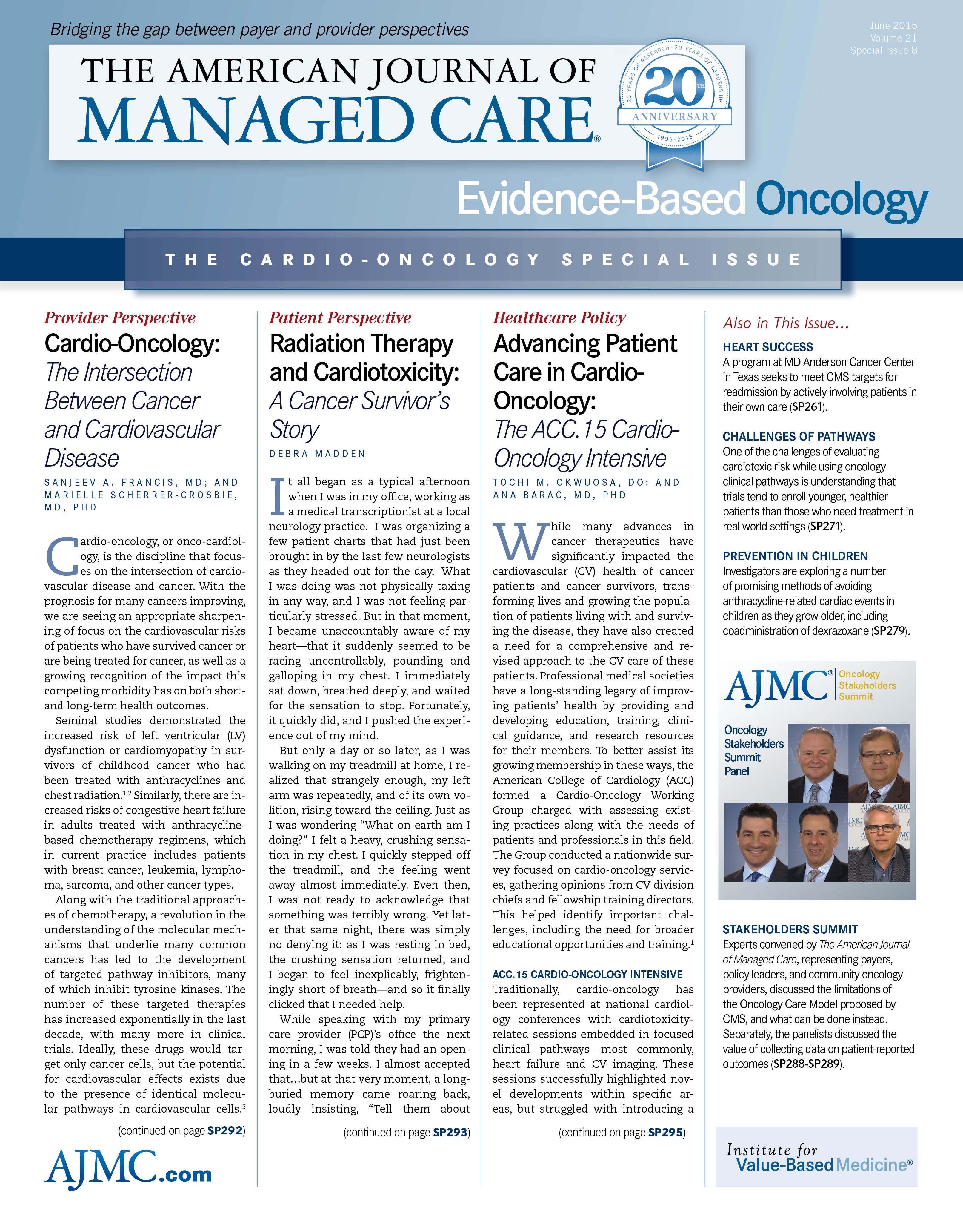- Center on Health Equity & Access
- Clinical
- Health Care Cost
- Health Care Delivery
- Insurance
- Policy
- Technology
- Value-Based Care
Cardio-Oncology: A Sign of How Far We Have Come
Evidence-Based Oncology's editor in chief introduces the special issue on cardio-oncology.
Siddartha Mukherjee’s book, The Emperor of All Maladies, and the recent PBS documentary of the same name provide an important historical perspective on the enormous scientific and human struggle that has led to today’s profound advances in the war on cancer. In the early days of chemotherapy and radiation therapy, doctors and patients worked together in a desperate battle to defeat a seemingly unstoppable enemy, and progress was marked by near equal parts scientific success and human tragedy. Some of the great early therapeutic successes were fraught with significant treatment-related side effects and unintended long-term toxicities. The radiation therapy that made cures possible for Hodgkin lymphoma led to premature atherosclerotic heart disease. Doxorubicin, an indispensable part of many combination chemotherapeutic regimens, could cause the development of severe cardiomyopathies. Even targeted therapies, such as trastuzumab, could cause significant cardiac toxicity unless used with caution.
During the past 4 decades, survival rates for a number of cancers have dramatically improved; diseases once thought untreatable are now routinely cured. Over time we moved from focusing exclusively on treating cancer to planning for long-term survivorship. The American Association of Cancer Research estimates that 1 of 22 people currently living in the United States is a cancer survivor. Treating and even curing cancer is now simply not enough; ensuring that those who have survived cancer avoid long-term toxicities of therapy is an essential part of effective, best-practice based cancer care.
Cardio-oncology is the study, management, and prevention of potential cardiac toxicities of cancer treatment. It includes risk mitigation as part of initial treatment planning, monitoring patients for symptoms and complications during the course of therapy, and the development of appropriate cardiac monitoring as part of routine survivorship care. Effective care planning includes the need to recognize that certain cancer patients, including children and the elderly, may be particularly vulnerable to the cardiac effects of treatment. The value proposition of cardio-oncology is that there are enormous human and financial benefits to caring for cancer patients by remaining mindful of the potential cardiac toxicities of treatment and averting these complications through rigorous care planning and pre-planned monitoring.
This edition of Evidence-Based Oncology could be considered a primer on cardio-oncology. It includes a retrospective review of research studies that provide an overview of scientific evidence related to the cardiac effects of cancer treatment. In our provider commentaries, we hear about programs that have successfully led to improved awareness and mitigation of cardiac risk for patients undergoing treatment. A commentary by Franco and Lipschultz provides a historical perspective on anthracycline-related cardiac toxicity and the importance of late effects of cancer treatment.
In the early days of cancer care, the primary goal of treatment was survival, at virtually any cost. Based upon a 4-decade leap forward in experience, technology, and increasingly effective therapeutics, our goals are now focused upon the idea of restoring a patient to wholeness. An improved understanding of adverse effects of cancer regimens, such as cardiotoxicity, will help to better prepare us for a move toward a continuum of care model in which we do not view cancer care as being divorceable from the goals of long-term survivorship. These sensibilities will help push us successfully forward through the next 4 decades of cancer care innovation.


